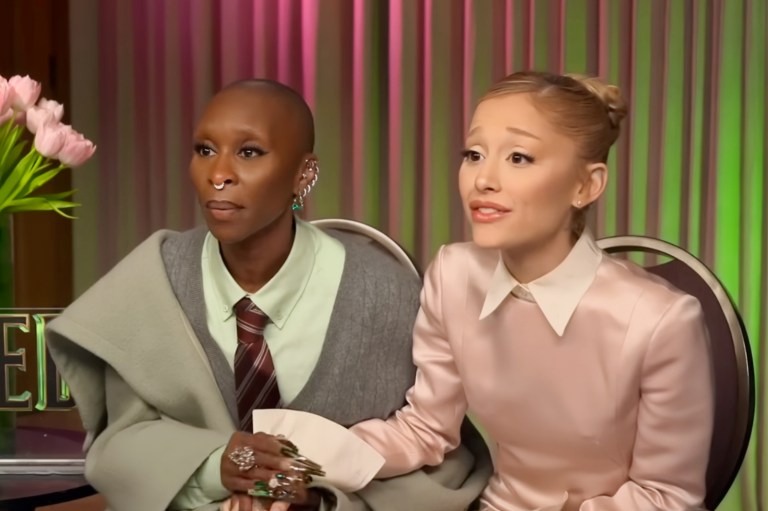
The Silver Lining In Failure: At Least You Had The Courage To Try
Because most people quit. Most people let the silence press them down, dim their screaming passion to a dull drone. We mustn't let it.

The internet is scattered with inspirational quotes for dealing with failure – most, if not all, written in the warm, luxurious hindsight of success. Oscar Wilde, Thomas Edison, Steve Jobs all had strong views on the notion of defeat and its importance in paving our road to success; the way persistence was crucial, the only thing that mattered. As young creatives, however, it’s occasionally difficult to believe them, to trust in the wisdom of a Tumblr meme. You see, we’re just so susceptible to it, rejection, that is — like ambitious little sponges floating aimlessly in an ocean of “No”s — trying, always trying, to do as Beckett suggested and “Try again. Fail again. Fail better.”
Last year, I wrote and directed a short film, something so many young creatives do as means of leaving a mark, making an artistic statement, getting our foot in the door. I poured my life into it; it was my everything, the well in which all my love, pain, and passion settled. I’d stay up until morning, meeting sunrise with a mug of lukewarm coffee as I coursed my pen over each and every line, action, and detail – determined to get it right, determined to tell the story I wanted to tell. You see, storytelling saved my life, and I’ll feel forever indebted to it. When the world was clipping at my heels, pushing me — screaming and bloody-nosed — into the schoolyard pavement; it was storytelling that leant me a hand, helped me to my feet. It gave me reason, it gave me belief, it validated my journey.
And then, it was rejected.
It’s hard to accept that the result of so much of your open, honest expression can lie with such flippancy in the palms of absolute strangers; strangers with lives and dreams of their own, sitting shoulder-to-shoulder in an air-conditioned screening room somewhere uptown as they half-heartedly consider lunch and love and the possibility of parking tickets.
It’s hard to accept the power they hold over your immediate future, the way they could, so easily, divert your path in the direction you so crave.
But that’s how it goes. No matter how much of yourself you pour into your proposal, essay, script, song or painting; there’ll always be someone sitting there, someone you don’t know, caught up in the valid movements of their own life, of their own feelings, of their own existence. They will make a decision — just as you might decide between a coffee and a latte — and more often than not, the decision will be that you’re not good enough, that your art isn’t art enough, that the words you write don’t speak strongly enough, surely enough, loudly enough, on quite the right topic in quite the right way.
And it’s hard.
It’s hard because it’s easy: so easy to let it stop you, to let the rejection emails define your ability, to read the “sorry”s and “unfortunately”s and the “with regret”s and retreat into a place of ungrounded reflection and doubt. To have the cultivation of so much time, money, hope and belief arrive in the cruel form of silence or a generic email will always burn, hurt and cut deep. It’s meant to, it’s a good thing — if it didn’t, it would mean that you didn’t care. But you do care. You’re so hungry for it, so hungry for it in a way they couldn’t possibly understand.
Failure is such a loaded notion because it suggests finality — the indefinite absence of success — but what better a foundation is there on which to build success than that of failure? This is where we get to make a choice, this is our opportunity to grow, to separate ourselves from the crowd. Because most people quit. Most people let the silence press them down, dim their screaming passion to a dull drone.
We mustn’t let it.
We’re not all Lena Dunhams or Jennifer Lawrences. We can’t all be discovered, out of the blue, wandering aimlessly through Times Square. We can’t all land quite so easily, quite so surely, quite so immediately at the exact point on which we aim. It’s not meant to be that easy. We have to accept our failures as fleeting, allow them to fuel the fire on which we run. We need to let them compel us forward, let them motivate our madness.
Because failure, though bundled so tightly in such ugly wrapping, is more a prize than most people can claim. Failure is the hurdle you jumped, the proof of attempt, the way you tried. In order to fail successfully we must accept the validity of their silence, the validity of their copy-and-pasted emails, the validity of their decisions, so far beyond our control. We must not resent them, but welcome them as reason to continue, reason to try again.
Success will taste all the more sweeter for it. ![]()











